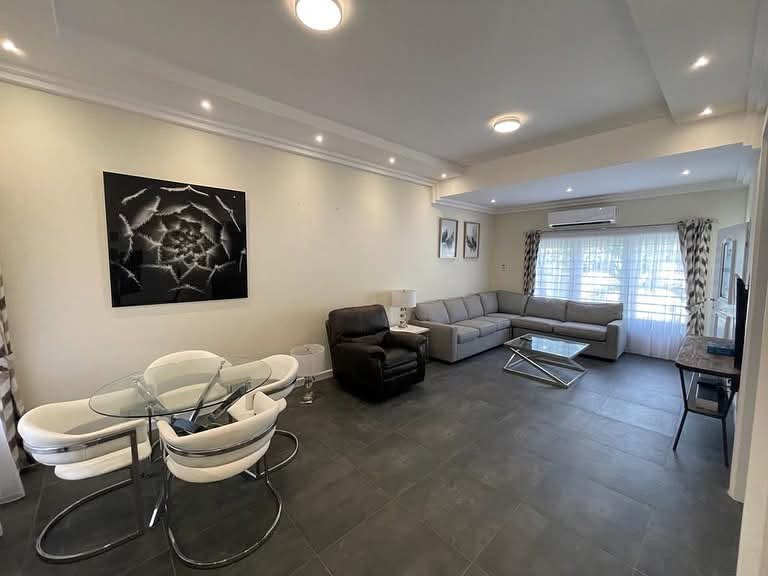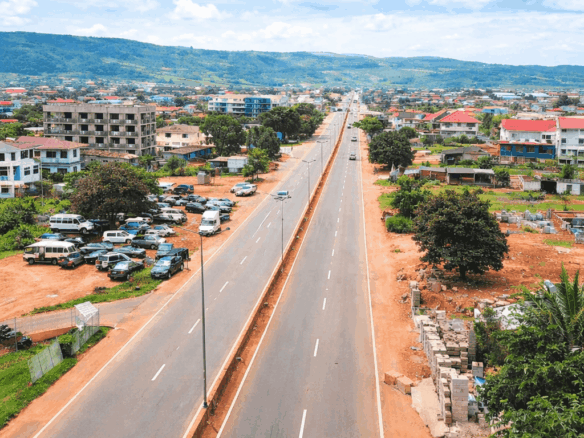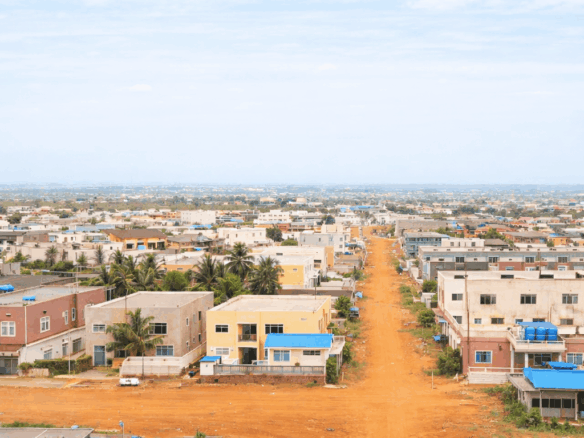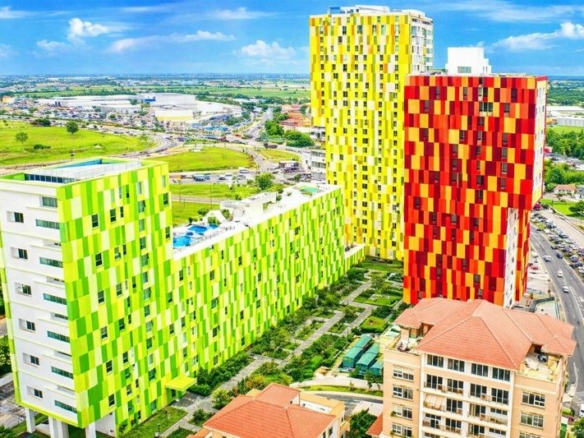Property inspections before buying in Ghana aren’t a luxury, they’re your primary defence against fraud, structural failures, and legal nightmares costing buyers thousands annually. With Ghana’s Supreme Court documenting cases where the same 50 acres had 13 different sellers over 30 years, and the Property Fraud Unit receiving over 40 cases weekly, comprehensive inspections represent the difference between sound investment and catastrophic loss.
The Real Cost of Skipping Inspections
A US-based medical doctor lost $48,841 in 2022 to a sophisticated fraud scheme. She received fake indentures, forged bank cheques, and fabricated receipts. When she finally visited the property, she discovered nothing had been purchased. Police arrested the fraudster, but only $8,500 was recovered.
This isn’t an isolated case. Building Inspectors of Ghana report diaspora buyers regularly pay full price for homes without inspections, discovering leaking roofs, faulty wiring, or incomplete shells only after closing. The tragedy? These buyers would never skip inspections in their home countries but abandon due diligence in Ghana.
What Professional Inspections Actually Cost
Comprehensive property inspections and due diligence typically cost GHS 16,000-45,000 (approximately $1,350-$3,750) for standard residential properties, just 3-8% of most property values. This investment covers multiple essential services.
Lands Commission searches cost GHS 237.50 in Greater Accra or GHS 132.50 elsewhere, revealing ownership history, encumbrances, and litigation. Licensed surveyor fees range from GHS 2,000-8,000, verifying boundaries match legal descriptions and preparing certified site plans required for registration.
Structural engineer inspections cost GHS 2,000-5,000 for basic assessments, rising to GHS 10,000-20,000 for comprehensive evaluations. This matters because research on Kumasi buildings found concrete strength 26-60% below required standards, failures that could render properties uninhabitable or require expensive remediation.
Legal due diligence by real estate lawyers runs GHS 3,000-8,000, though the Ghana Bar Association’s conveyancing fees operate on sliding scales. Lawyers conduct title searches, litigation searches at multiple courts, and manage registration, protecting against fraud affecting an estimated 30-40% of land transactions in major cities.
Litigation searches cost just GHS 100-300 per court registry but represent the most critical overlooked step. The Supreme Court’s landmark case exposed how buyers relying solely on Lands Commission searches fell victim to fraud, court judgments may take months or years to appear in Commission records.
The Structural Nightmares Inspections Uncover
Foundation problems dominate structural concerns in Ghana. Inspectors regularly find inadequate foundations on poorly prepared soils, buildings constructed over waterways, and settlement cracks jeopardizing stability. Research documenting concrete quality revealed compressive strength 26-60% below minimum requirements, contractors cut corners using inferior materials amid material cost fluctuations.
Roofing defects create cascading damage when unaddressed. Missing tiles, rust patches, improper flashing, and structural issues with trusses trigger water damage, mould growth, and structural instability extending beyond the roof to walls and foundations.
Flooding represents Ghana’s most pervasive property risk. Accra experiences flooding as a “yearly phenomenon” with major disasters documented across decades. The 2023 Akosombo Dam spillage displaced over 35,000 people with extensive property damage. Research found 58% of flood victims lost houses, furniture, livestock, and belongings to water damage.
Legal Landmines That Destroy Ownership Dreams
Title deed fraud operates at industrial scale in Ghana. Only Greater Accra Region and Kumasi metropolis function as registrable districts for title registration, the remaining 14 of 16 regions operate under weaker deed registration creating fraud opportunities.
Customary land ownership generates disputes because 80% of Ghana’s land falls under customary law involving stools, families, and communities. Different family members claim interest in the same property without each other knowing. Research in Bamahu suburb found that 50-53% of homeowners built without obtaining indentures, building plans, permits, or land title certificates.
Land guard violence terrorizes legitimate property owners despite criminalization. The Lands Act 2020 punishes land guard activities with 5-15 years imprisonment, yet more than 40 cases weekly reach the Property Fraud Unit, and over 2,000 people face annual internal displacement from land disputes.
Red Flags Signalling Fraud
Pressure to act quickly represents the clearest danger signal. Legitimate property sales progress deliberately through searches, verification, and registration taking 2-6 months. Sellers pushing “buy now or lose it” tactics seek to bypass due diligence.
Cash-only transaction demands indicate fraud. Legitimate sellers accept bank transfers creating paper trails. Requests for advance fees for “processing” or “registration” before transfer, combined with reluctance to allow lawyer involvement, signal scams.
Documentation red flags include incomplete paperwork, alterations with crossed-out sections, inconsistent information where names and dates don’t match, and missing registration numbers. Lands Commission searches revealing conflicting ownership records, outstanding litigation, undisclosed encumbrances, or family disputes demand investigation.
Your Action Plan for Safe Property Purchases
Professional property inspections costing 2-5% of property value protect investments worth hundreds of thousands or millions of cedis. Assemble three essential professionals: a real estate lawyer verified with the Ghana Bar Association, a licensed agent registered with the Real Estate Agency Council, and an independent surveyor certified by the Ghana Institution of Surveyors.
Conduct both Lands Commission searches and litigation searches at multiple court levels. Use escrow accounts for payments, structure payments in phases holding 20% until Land Title Certificate issues, and never skip professional inspections regardless of seller pressure.
Ghana’s real estate market offers tremendous opportunity with property values projected to rise 5-10% in 2025 and rental yields of 8-11%. Political stability and economic growth support continued appreciation. Yet without rigorous due diligence, buyers risk joining the thousands losing money annually to fraud and structural failures.
Visit GhanaPropertyFinder.com to browse verified property listings featuring inspection-ready homes and connect with pre-vetted professionals for safe, successful property transactions in Ghana.
Frequently Asked Questions
How much should I budget for property inspections in Ghana?
Budget GHS 16,000-45,000 (approximately $1,350-$3,750) for comprehensive inspections and due diligence, representing 3-8% of most property values. This covers Lands Commission searches, licensed surveyor fees, structural engineer inspections, legal due diligence, and litigation searches.
What’s the biggest mistake diaspora buyers make?
Skipping professional inspections and litigation searches. Many buyers wouldn’t purchase property abroad without inspections yet abandon due diligence in Ghana, discovering fraud, structural defects, or legal disputes only after payment.
How long does complete due diligence take?
Complete property purchase with thorough due diligence spans 2-6 months for cash purchases. Final registration at Lands Commission officially targets 90 days but typically requires 6-8 months minimum.
Are property inspections legally required in Ghana?
Inspections aren’t legally mandatory, but the National Building Regulations require building permits with penalties of 200-400 penalty units or 3-6 months imprisonment for violations. Professional inspections verify compliance and protect against fraud.
How do I verify a real estate agent’s credentials?
Verify licensing with the Real Estate Agency Council established by Real Estate Agency Act 2020 (Act 1047), check membership in Ghana Real Estate Developers Association or Ghana Real Estate Professionals Association, and review online testimonials and references.






